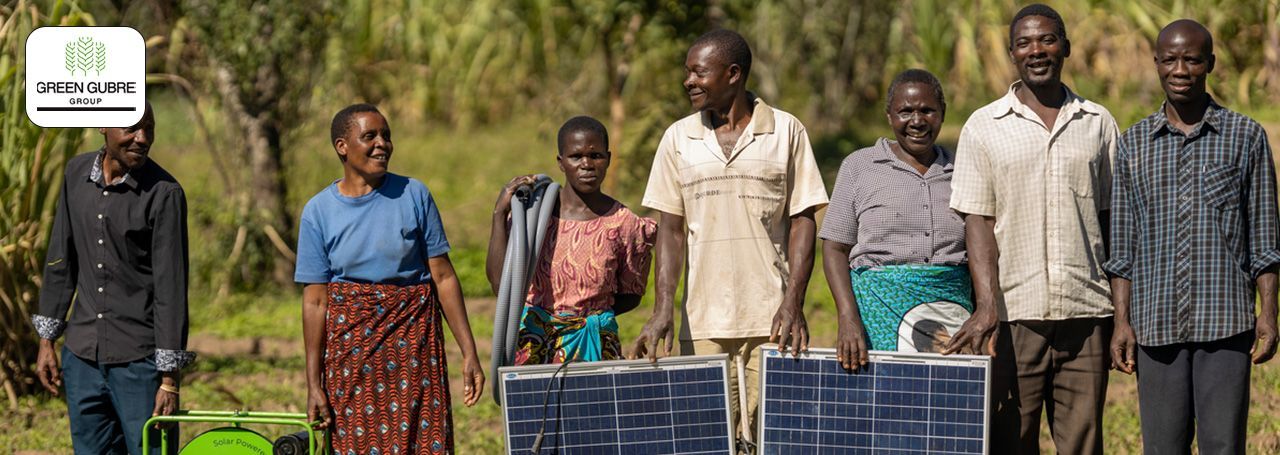Empowering African Smallholder Farmers with Mobile Technology
Empowering African Smallholder Farmers with Mobile Technology

In Africa, smallholder farmers are the backbone of the agricultural sector, producing most of the continent’s food supply. However, they often face challenges in accessing resources, markets, and information. Mobile technology has emerged as a powerful tool to bridge these gaps, providing farmers with real-time information, financial services, and access to markets directly from their phones. This blog explores the benefits of mobile technology in African agriculture, the features most impactful for smallholder farmers, and strategies for expanding mobile technology adoption.
1. The Role of Mobile Technology in African Agriculture:
Mobile technology enables smallholder farmers to access valuable resources and services, helping them make informed decisions, improve productivity, and increase income.
- Access to Real-Time Information: Mobile technology offers farmers instant access to weather forecasts, pest management tips, and crop price data, allowing them to make timely, data-driven decisions.
- Enhanced Financial Inclusion: Mobile platforms enable farmers to access financial services, such as loans, digital payments, and insurance, overcoming barriers to traditional banking in remote areas.
- Direct Market Access and Fair Pricing: Farmers can connect directly with buyers and cooperatives through mobile platforms, bypassing intermediaries, ensuring fair prices, and expanding their market reach.
2. Key Features of Mobile Platforms Transforming African Agriculture:
Mobile agriculture platforms in Africa provide features that address the unique needs of smallholder farmers, from agricultural advice to financial tools.
- Localized Weather Updates: Farmers rely on weather forecasts to plan planting and harvesting schedules. Mobile apps providing hyper-local forecasts help minimize weather-related risks.
- Market Price Tracking and Trading Opportunities: Mobile technology allows farmers to check market prices for various crops, supporting better pricing and enabling them to choose the most profitable selling times.
- Digital Extension Services and Training: Mobile platforms offering agronomic advice, pest control information, and best practices help farmers improve productivity and crop quality.
- Access to Digital Finance and Payments: Mobile money platforms provide a secure and convenient method for managing transactions, reducing the need for cash and increasing transparency.
3. Challenges to Mobile Technology Adoption Among African Farmers:
Despite the benefits, certain barriers limit the widespread adoption of mobile technology among African smallholders, such as limited connectivity, digital literacy, and access to devices.
- Poor Internet and Mobile Connectivity in Rural Areas: Limited Internet and mobile network coverage can hinder access to mobile platforms. Expanding network infrastructure in rural areas is essential for broader adoption.
- Low Digital Literacy Rates: Farmers unfamiliar with digital tools may struggle to use mobile platforms effectively. Providing digital literacy training helps improve usability and builds confidence.
- Cost and Access to Mobile Devices: Mobile devices and data plans can be costly, especially for smallholders. Offering affordable devices and data plans through subsidies or financing options can improve accessibility.
4. Strategies to Promote Mobile Technology Use Among African Farmers:
Promoting mobile technology adoption requires coordinated efforts from governments, NGOs, and private companies to improve accessibility, affordability, and digital literacy.
- Subsidized Mobile Devices and Data Plans: Governments and mobile network operators can collaborate to provide affordable mobile devices and data plans, making technology accessible for smallholders.
- Digital Literacy and Training Programs: Community workshops and mobile-based training programs can equip farmers with the knowledge needed to navigate mobile platforms effectively.
- Public-Private Partnerships for Infrastructure Development: Collaboration with private sector companies to expand mobile network coverage in rural areas is critical to making mobile technology accessible across Africa.
- Localized Content in Native Languages: Developing mobile platforms with multilingual support allows farmers to access resources in their native languages, making technology more inclusive.
5. Benefits of Mobile Technology for Sustainable Agriculture and Rural Development:
Mobile technology offers a range of benefits that contribute to the productivity, profitability, and resilience of African smallholder farmers, fostering sustainable agriculture and rural economic growth.
- Increased Productivity and Yield Stability: Access to weather data, pest management advice, and best practices allows farmers to adopt efficient farming techniques, improving yield and crop quality.
- Economic Empowerment and Market Access: Mobile platforms reduce dependency on middlemen, ensuring that farmers receive fair prices and expanding their market reach. Higher-income from direct market access supports rural development.
- Improved Climate Resilience: By providing real-time climate information, mobile technology helps farmers anticipate extreme weather and adjust farming practices, enhancing resilience to climate variability.
- Supporting Food Security and Sustainable Farming: With better access to resources, knowledge, and financial services, smallholder farmers can maintain stable production, supporting food security and promoting sustainable farming practices across Africa.
Conclusion:
Mobile technology is a transformative force for African smallholder farmers, enabling them to access information, financial services, and markets in ways that were previously out of reach. By improving infrastructure, providing affordable devices, and enhancing digital literacy, governments and stakeholders can support the widespread adoption of mobile technology. As more African farmers embrace mobile platforms, they are better equipped to enhance productivity, ensure food security, and contribute to sustainable agricultural growth across the continent.




